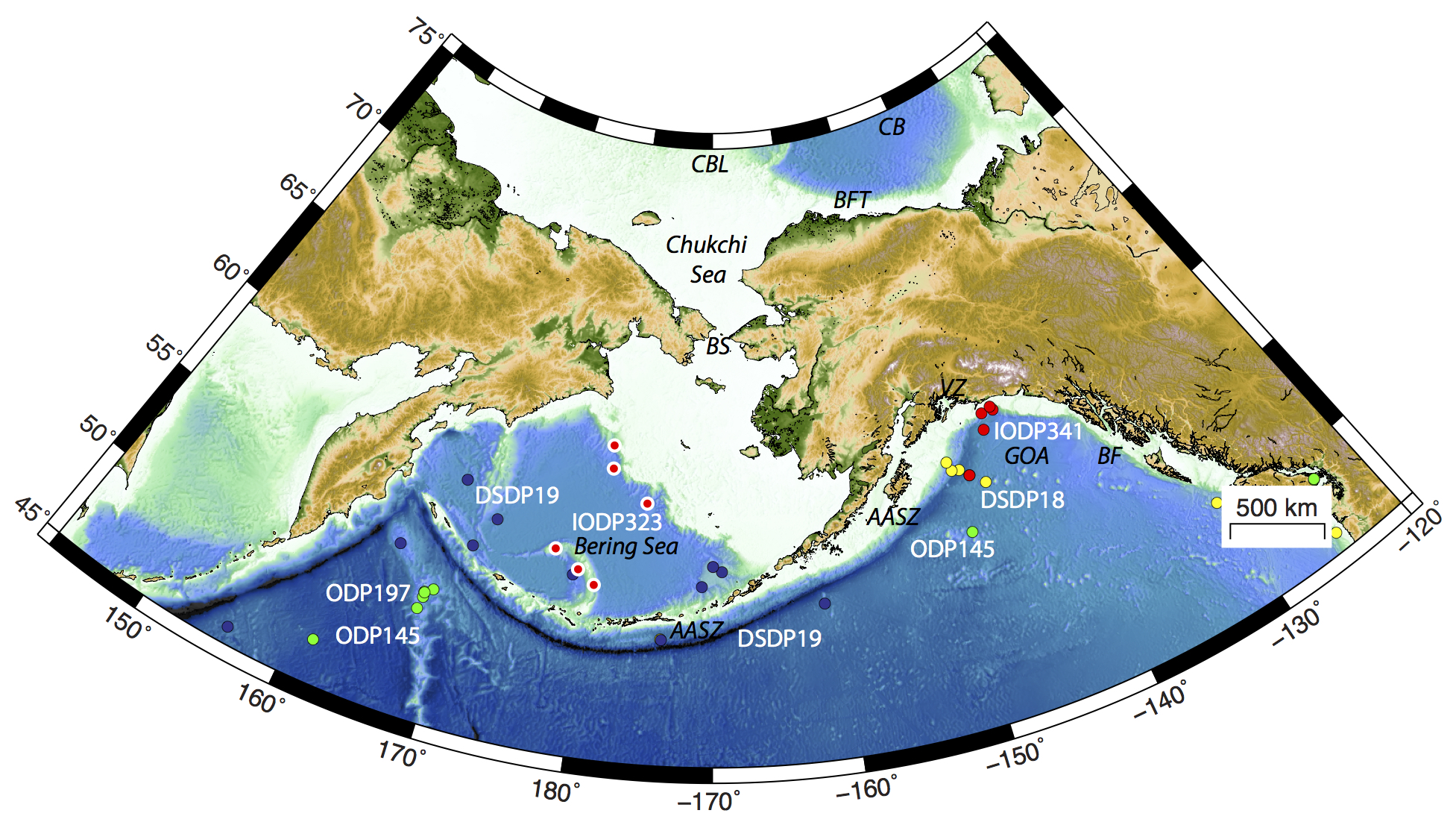Scientific Exploration of the Arctic and North Pacific (SEA-NorP)
Time: September 25-27, 2018
Location: Mt. Hood, Oregon, USA
Workshop Organizers: Lindsay Worthington (University of New Mexico), Bernard Coakley (University of Alaska), Matthias Forwick (UiT The Arctic University of Norway in Tromsø), Juliane Mueller (Alfred Wegener Institute), Summer Praetorius (USGS), and Kristen St. John (James Madison University)
Science Steering Committee: Jess Larson (University of Alaska), Alan Mix (Oregon State University), Terry Plank (Lamont-Doherty Earth Observatory), Harold Tobin (University of Wisconsin – Madison), and Donna Shillington (Lamont-Doherty Earth Observatory)
Workshop Resources and Reports:
- Workshop Final Report (PDF, posted April 2019)
- Meeting Report, Eos, 2019
- See Meeting Details tab for agenda and participant list.
Interest statements and white papers solicited from attendees (and the broader scientific community) will establish a platform on which to build the workshop and identify content for short “visionary” talks. These talks and breakout group recommendations will form the backbone of the workshop report. The meeting will lead to the development of new collaborations as well as strengthening existing partnerships.
Details related to travel and lodging will be sent to accepted participants.
Workshop Documents:
- Workshop Agenda: Agenda (as of September 2018)
- Workshop Participant List: SEA-NorP Participants_Sept18
- Meeting Report, Eos: Worthington, L. L., K. St. John, and B. Coakley (2019), The future of scientific drilling in the North Pacific and Arctic, Eos, 100, https://doi.org/10.1029/2019EO114955. Published on 01 February 2019.
- Final Workshop Report: Scientific Exploration of the Arctic and North Pacific: Community-Driven Priorities for Ocean Drilling (April 2019)
(a) 1 page statement of interest that includes:
- Why you are interested in attending this workshop and ideas for hypotheses that can be tested by ocean drilling in the region
- Summary of your scientific expertise
- Previous experience with ocean drilling or related data
(b) 2 page CV or NSF-style biographical sketch
(c) Level of travel support needed – see below
to Kristen St. John [stjohnke@jmu.edu] by June 25, 2018 (Deadline Extended!) Students and postdocs must include a letter of support (max. one page long) from their advisor. We will review applications and send invitations in late June 2018.
Thanks to funding from USSSP we are able to provide some travel support for US-based scientists participation at the workshop. Funding will be distributed to best meet the travel needs of the accepted applicants and to achieve broad representation from the scientific community at the workshop. As you prepare your estimated expenses for attending the workshop, bear these details in mind:
We negotiated a rate of ~$123/night for the hotel. Meal costs are estimated to be ~$72/day. Given that funding is limited, please make use of other sources of funding for your participation if they are available. Please indicate if you are requesting travel support. If requesting travel support, please estimate the amount you need in the following categories: Estimate of airfare cost; Lodging cost; and Total funds requested.
INTERNATIONAL PARTICIPANTS
International participants are encouraged to apply, but travel support will need to be provided by appropriate member countries. Potential participants from ECORD countries, who depend on financial support, should send application materials (CVs and letters of motivation why to attend the workshop) directly to Juliane Mueller [juliane.mueller@awi.de] by May 11, 2018.
We encourage applications from individuals with experience in paleoclimate, paleoceanography, sedimentology, geobiology, geophysics, geochemistry, seismology, volcanology, structure and tectonics to ensure the requisite background knowledge and leadership to take action will be available at the workshop. We encourage graduate students, early career scientists and those new to IODP to apply. Participation in the workshop is not only limited to academic researchers–program officers, government representatives, and private sector scientists are welcome and encouraged to participate.







